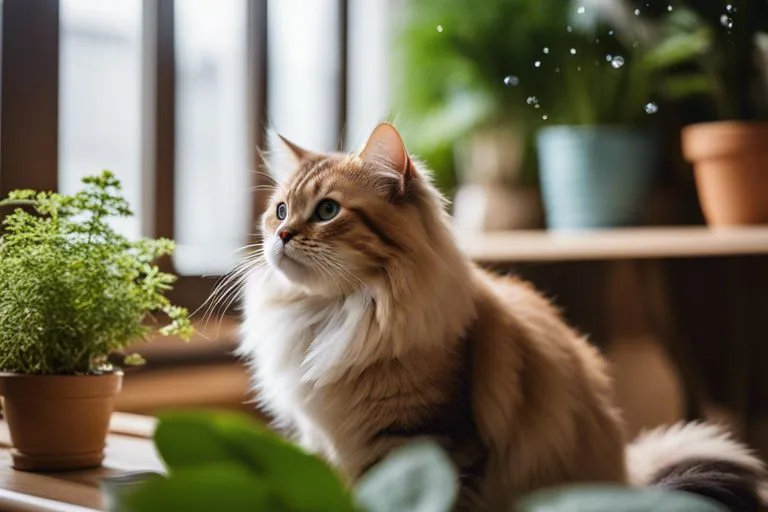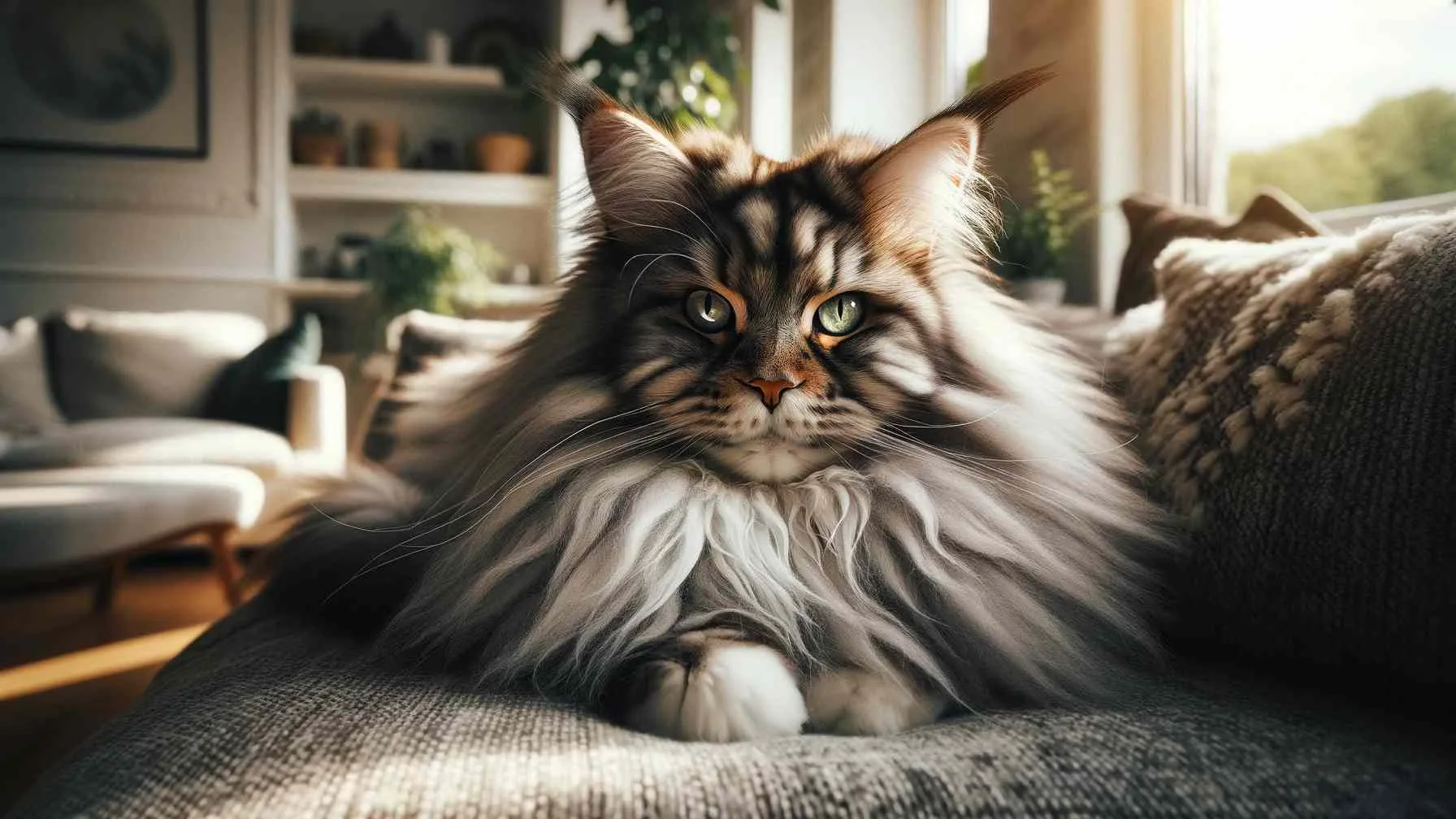You may think that sneezing in cats is a common occurrence, but did you know that frequent nose sneezing in Siberian cats could be a sign of a more serious underlying issue? While occasional sneezing is normal, frequent and persistent nose sneezing in your Siberian cat could indicate a number of potential health concerns. In this informative blog post, we will take a closer look at the common causes of nose sneezing in Siberian cats, including the potential dangers of ignoring these symptoms and the importance of seeking proper veterinary care. If you have noticed your Siberian cat sneezing more frequently than usual, it’s important to understand the potential reasons behind this behavior and how to best address it to ensure the health and well-being of your furry friend.
Key Takeaways:
- Common Causes: Understanding the common causes of nose sneezing in Siberian cats is essential for pet owners to provide the right care and treatment.
- Environmental Allergens: Exposure to pollen, dust, and other environmental allergens can trigger sneezing in Siberian cats and should be taken into consideration.
- Viral Infections: Cats can suffer from viral infections such as feline herpesvirus and calicivirus, which can lead to sneezing and should be addressed by a veterinarian.
- Nasal Blockages: Foreign objects or growths in the nasal passages can obstruct airflow and cause sneezing in Siberian cats, necessitating medical attention.
- Dental Issues: Dental problems such as tooth infections or abscesses can lead to sneezing in cats and require professional dental care to resolve the issue.
Anatomy and Physiology of Sneezing in Cats
Obviously, as a Siberian cat owner, you may have noticed your furry friend sneezing from time to time. It’s important to understand the anatomy and physiology behind this common feline behavior. If you want to read more on why your cat might be sneezing, you can check out this helpful article on Why Is My Cat Sneezing?
How Cats Sneeze: The Mechanics
When your cat sneezes, it’s their body’s way of expelling irritants from the nasal passages. Just like humans, cats can sneeze due to dust, pollen, or other particles that trigger the sneeze reflex. This is often a quick and involuntary response, and it’s a natural way for your cat’s body to clear the nasal passages and keep the respiratory system healthy.
The Role of the Feline Respiratory System
The feline respiratory system is similar to that of humans, but with some unique features. The nasal passages, sinuses, and airways all play a role in the sneezing process. Sneezing helps keep this system clean and clear, preventing the buildup of mucus and potential infections. However, frequent or prolonged sneezing can sometimes be a sign of an underlying issue, so it’s important to keep an eye on your cat’s sneezing habits.
Common Causes of Sneezing in Siberian Cats
Even though Siberian cats are known for their robust health, they can still experience sneezing from time to time. There are several common causes of sneezing in Siberian cats, ranging from environmental allergens to infectious agents and diseases. It is important to be aware of these causes so that you can take the necessary steps to keep your furry friend healthy and happy.
Environmental Allergens
Environmental allergens such as pollen, mold, dust, and mildew can trigger sneezing in Siberian cats. These allergens can be present both indoors and outdoors, so it is important to keep your home environment clean and free of dust and mold. Regular grooming of your Siberian cat can also help minimize the impact of environmental allergens on their respiratory system. Additionally, you may want to consider using an air purifier in your home to reduce the presence of allergens in the air.
Infectious Agents and Diseases
Siberian cats can be susceptible to infectious agents and diseases that can cause sneezing. Respiratory viruses such as calicivirus and feline herpesvirus can lead to sneezing, nasal discharge, and other respiratory symptoms. It is essential to keep your Siberian cat’s vaccinations up to date to protect them from these infectious agents. If you notice persistent or severe sneezing in your cat, it is important to consult with your veterinarian to rule out any underlying diseases or conditions.
Diagnosis and Treatment
Despite the common causes of sneezing in Siberian cats, it is important to properly diagnose the underlying issue to ensure your feline friend receives the appropriate treatment. In some cases, sneezing can be a symptom of a more serious health issue, such as feline herpesvirus, calicivirus, or bacterial infection. Schedule a veterinary appointment if your Siberian cat is experiencing frequent or prolonged bouts of sneezing. You can read more about this topic in an article titled Why Is My Cat Sneezing | Purina® Canada.
When to See a Veterinarian
If your Siberian cat has been sneezing for an extended period or is exhibiting other concerning symptoms such as nasal discharge, loss of appetite, or lethargy, it is crucial to seek veterinary care promptly. These signs could indicate a more serious underlying issue that requires medical attention.
Available Treatments and Preventive Care
Upon visiting the veterinarian, your cat will undergo a thorough examination to determine the cause of the sneezing. Depending on the diagnosis, treatment may include medications such as antibiotics for bacterial infections or antiviral drugs for viral illnesses. Additionally, your vet may recommend supportive care and preventive measures to help manage and reduce the frequency of sneezing episodes. It’s essential to follow your vet’s recommendations and administer any prescribed medication as directed to ensure the best possible outcome for your furry companion.
Living with a Siberian Cat: Management and Care
For many cat lovers, living with a Siberian cat is a rewarding experience. These majestic and beautiful creatures make wonderful companions, but they do require certain management and care to ensure their health and well-being. Here are some important points to consider when living with a Siberian cat.
Daily Management of Allergens
If you suffer from allergies, you may be concerned about living with a Siberian cat. While they are often referred to as hypoallergenic, it’s important to note that no cat breed is completely hypoallergenic. Siberian cats produce lower levels of the Fel d 1 protein, the primary allergen in cats, which can make them a better choice for those with allergies. To manage allergens, it’s important to keep your Siberian cat groomed and bathed regularly to reduce the dander and allergens present in their fur. Additionally, keeping your home clean and well-ventilated can help diminish allergens in the environment. Regular grooming and cleaning are essential for minimizing the impact of allergens on your health.
Long-term Health and Well-being of Siberian Cats
When it comes to the long-term health and well-being of Siberian cats, it’s important to stay on top of their veterinary care. Regular check-ups, vaccinations, and preventative care are essential for keeping your Siberian cat healthy. It’s also important to provide them with a balanced diet, plenty of exercise, and mental stimulation to ensure their overall well-being. In addition, keeping an eye out for any changes in behavior or physical condition and addressing them promptly with your veterinarian is crucial for maintaining their health. Proactive veterinary care, balanced diet, exercise, and mental stimulation are key to ensuring the long-term health and well-being of your Siberian cat.
Are You Aware Of The Common Causes Of Nose Sneezing In Siberian Cats?
Drawing together the information presented, it’s important for you to be aware of the common causes of nose sneezing in Siberian cats in order to better care for your feline companion. Whether it’s due to environmental allergens, respiratory infections, or dental issues, understanding these triggers can help you take the necessary steps to prevent or alleviate your Siberian cat’s sneezing episodes. For more detailed information about Siberian cats and their hypoallergenic properties, you can read more at The hypoallergenic Siberian cat—truth or myth?
FAQ
Q: What are the common causes of nose sneezing in Siberian cats?
A: The common causes of nose sneezing in Siberian cats include respiratory infections, allergies, foreign objects in the nasal passages, dental disease, and environmental irritants such as dust or smoke.
Q: How can I tell if my Siberian cat is experiencing nose sneezing due to a respiratory infection?
A: If your Siberian cat is experiencing nose sneezing due to a respiratory infection, you may also notice symptoms such as nasal discharge, coughing, lethargy, and loss of appetite. It is important to consult a veterinarian for a proper diagnosis and treatment plan.
Q: What can I do to prevent nose sneezing in my Siberian cat?
A: To prevent nose sneezing in your Siberian cat, it is important to keep their environment clean and free of potential irritants. Regular check-ups with a veterinarian, maintaining a healthy diet, and keeping up with vaccinations can also help prevent respiratory infections and other underlying health issues that may cause nose sneezing.



